Description
A NEW YORK TIMES “TEN BEST BOOKS OF 2022” An Oprah’s Book Club Selection • An Instant New York Times Bestseller • An Instant Wall Street Journal Bestseller • A #1 Washington Post Bestseller “Demon is a voice for the ages—akin to Huck Finn or Holden Caulfield—only even more resilient.” —Beth Macy, author of Dopesick “May be the best novel of 2022. . . . Equal parts hilarious and heartbreaking, this is the story of an irrepressible boy nobody wants, but readers will love.” (Ron Charles, Washington Post ) From the acclaimed author of The Poisonwood Bible and The Bean Trees, a brilliant novel that enthralls, compels, and captures the heart as it evokes a young hero’s unforgettable journey to maturity Set in the mountains of southern Appalachia, Demon Copperhead is the story of a boy born to a teenaged single mother in a single-wide trailer, with no assets beyond his dead father’s good looks and copper-colored hair, a caustic wit, and a fierce talent for survival. Relayed in his own unsparing voice, Demon braves the modern perils of foster care, child labor, derelict schools, athletic success, addiction, disastrous loves, and crushing losses. Through all of it, he reckons with his own invisibility in a popular culture where even the superheroes have abandoned rural people in favor of cities. Many generations ago, Charles Dickens wrote David Copperfield from his experience as a survivor of institutional poverty and its damages to children in his society. Those problems have yet to be solved in ours. Dickens is not a prerequisite for readers of this novel, but he provided its inspiration. In transposing a Victorian epic novel to the contemporary American South, Barbara Kingsolver enlists Dickens’ anger and compassion, and above all, his faith in the transformative powers of a good story. Demon Copperhead speaks for a new generation of lost boys, and all those born into beautiful, cursed places they can’t imagine leaving behind.
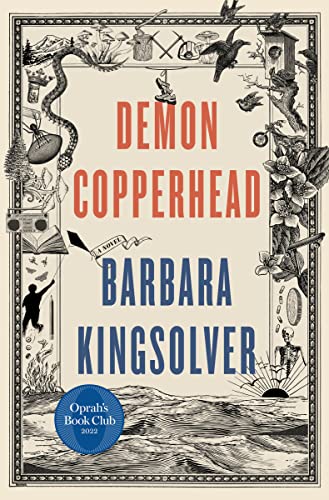
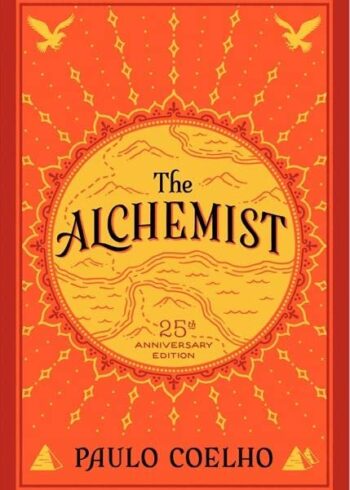
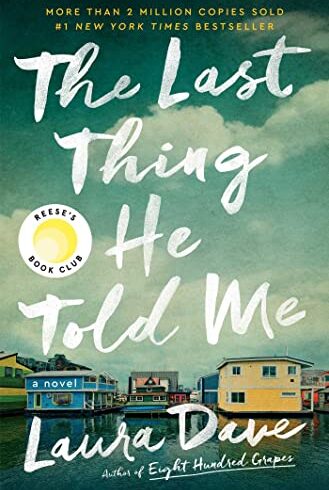



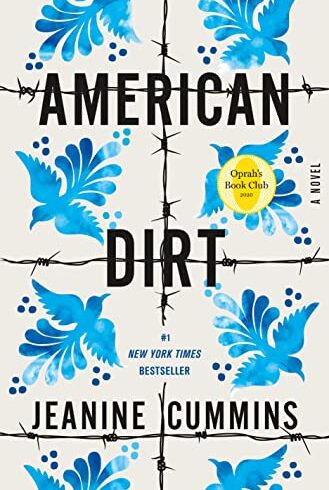

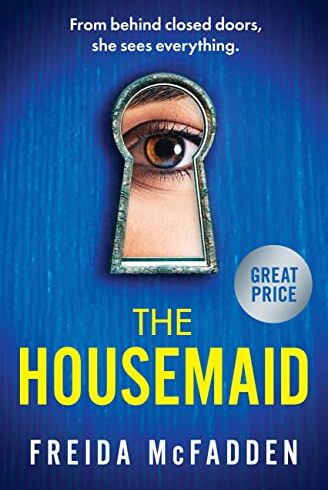

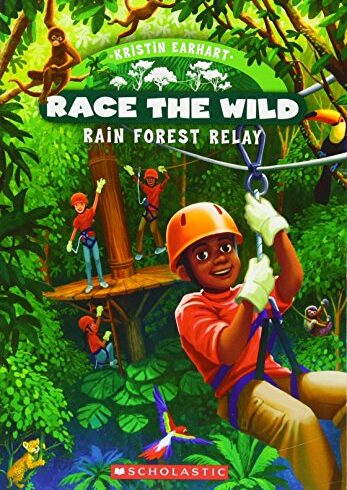
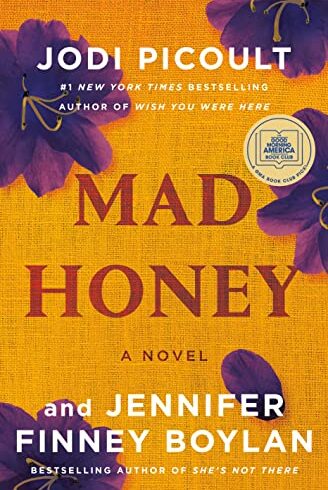
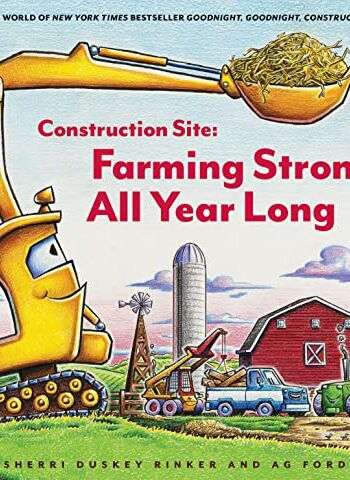
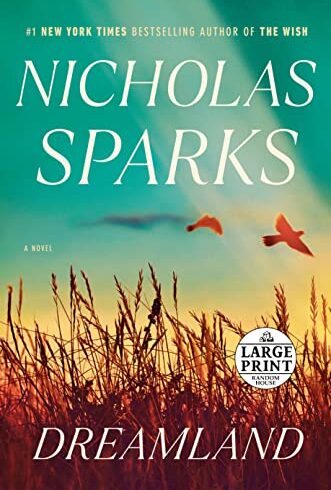
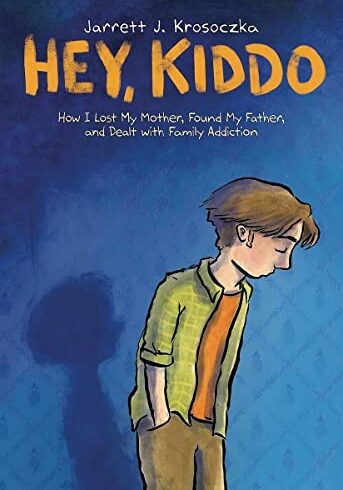
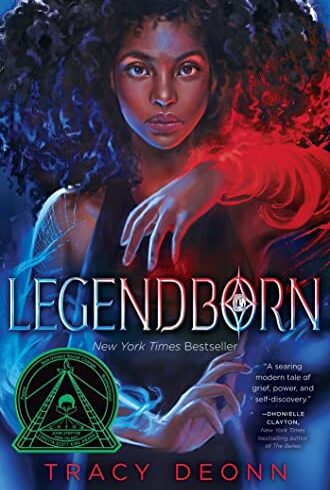
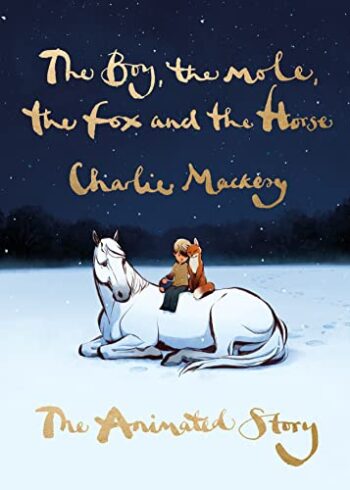
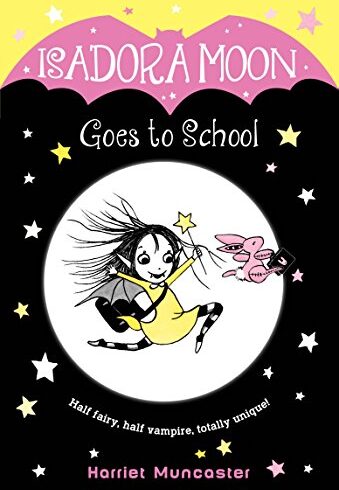

LA in Dallas –
You already know that Demon Copperhead by Barbara Kingsolver is a retelling of David Copperfield by Charles Dickens. Indeed, it is so faithful a retelling that, if the publisher had not already spilled the beans, I would feel compelled to mark this review a spoiler because of mentioning David Copperfield. If you have read David Copperfield at all recently, then you will recognize the characters and the major plot points as you read Demon Copperhead. (I last read David Copperfield when I was a kid in the late 1960s, so I was blessedly free from this detailed anticipation as I read Demon Copperhead. I did, however, check out the Wikipedia plot summary of David Copperfield on finishing Demon Copperhead, so I’m up to speed on both plot outlines.), And this, I say, is absolutely fine! If you’re going to steal, by all means, steal from the best! I am completely in earnest about that. Good stories get retold, and they should. West Side Story is Romeo and Juliet in new clothes, and it is brilliant! The story of Noah’s flood was stolen from the Sumerians (Gilgamesh). The tradition of stealing stories goes back as far as story-telling. Of course, it is not really stealing if you’re honest about it., Given what I’ve just told you, you might expect Demon Copperhead to be a lot like David Copperfield. It is not. Kingsolver transplants Copperfield to Lee County, Virginia, at the height of the oxycodone crisis. Lee County is a real place. Since the Civil War, Virginia has been an oddly-shaped state that thrusts a sharply pointed spear west into the Appalachian mountains. Lee County is the point of that spear. Kingsolver’s biography says she grew up in nearby Kentucky. She knows this country and its people., Victorian London was grim, but Lee County is arguably grimmer. In my memory David Copperfield is often light-hearted — Dickens finds things to laugh at. There is very little to laugh at in Demon Copperhead. The child poverty Dickens wrote about is arguably worse in Kingsolver’s Lee County. One reason for that is drugs. Victorian London had similar problems: alcoholism and laudanum, but the menu of chemicals was certainly smaller than it is in Kingsolver’s Lee County. It makes a grim, grim new way to trap kids in grinding poverty., Kingsolver has an agenda in Demon Copperhead. She wants us to stop laughing at Appalachia., “There’s this thing that happens, let’s say at school where a bunch of guys are in the bathroom, at the urinal, laughing about some jerk that made a fool of himself in gym. You’re all basically nice guys, right? You know right from wrong, and would not in a million years be brutal to the poor guy’s face. And then it happens: the jerk was in the toilet stall. He comes out of the stall with this look. He heard everything. And you realize you’re not really that nice of a guy. This is what I would say if I could, to all smart people of the world with their dumb hillbilly jokes: We are right here in the stall. We can actually hear you.”, (I cleaned up the language in that quote a bit, in order to include it in an Amazon review.), Now, to be honest, I am not entirely persuaded. I mean, I agree that it is wrong to ridicule country folks. (That’s not even a concession for me, since I am one myself.) But NO ONE gets immunity from being ridiculed by folks who think they’re smarter than you. *Everyone* gets ridiculed for being different. If you’ve never heard Country boys making fun of college boys and liberals and Democrats you haven’t been listening. Appalachia bears some unique burdens, but the burden of being made fun of is not one.
LA in Dallas –
You already know that Demon Copperhead by Barbara Kingsolver is a retelling of David Copperfield by Charles Dickens. Indeed, it is so faithful a retelling that, if the publisher had not already spilled the beans, I would feel compelled to mark this review a spoiler because of mentioning David Copperfield. If you have read David Copperfield at all recently, then you will recognize the characters and the major plot points as you read Demon Copperhead. (I last read David Copperfield when I was a kid in the late 1960s, so I was blessedly free from this detailed anticipation as I read Demon Copperhead. I did, however, check out the Wikipedia plot summary of David Copperfield on finishing Demon Copperhead, so I’m up to speed on both plot outlines.), And this, I say, is absolutely fine! If you’re going to steal, by all means, steal from the best! I am completely in earnest about that. Good stories get retold, and they should. West Side Story is Romeo and Juliet in new clothes, and it is brilliant! The story of Noah’s flood was stolen from the Sumerians (Gilgamesh). The tradition of stealing stories goes back as far as story-telling. Of course, it is not really stealing if you’re honest about it., Given what I’ve just told you, you might expect Demon Copperhead to be a lot like David Copperfield. It is not. Kingsolver transplants Copperfield to Lee County, Virginia, at the height of the oxycodone crisis. Lee County is a real place. Since the Civil War, Virginia has been an oddly-shaped state that thrusts a sharply pointed spear west into the Appalachian mountains. Lee County is the point of that spear. Kingsolver’s biography says she grew up in nearby Kentucky. She knows this country and its people., Victorian London was grim, but Lee County is arguably grimmer. In my memory David Copperfield is often light-hearted — Dickens finds things to laugh at. There is very little to laugh at in Demon Copperhead. The child poverty Dickens wrote about is arguably worse in Kingsolver’s Lee County. One reason for that is drugs. Victorian London had similar problems: alcoholism and laudanum, but the menu of chemicals was certainly smaller than it is in Kingsolver’s Lee County. It makes a grim, grim new way to trap kids in grinding poverty., Kingsolver has an agenda in Demon Copperhead. She wants us to stop laughing at Appalachia., “There’s this thing that happens, let’s say at school where a bunch of guys are in the bathroom, at the urinal, laughing about some jerk that made a fool of himself in gym. You’re all basically nice guys, right? You know right from wrong, and would not in a million years be brutal to the poor guy’s face. And then it happens: the jerk was in the toilet stall. He comes out of the stall with this look. He heard everything. And you realize you’re not really that nice of a guy. This is what I would say if I could, to all smart people of the world with their dumb hillbilly jokes: We are right here in the stall. We can actually hear you.”, (I cleaned up the language in that quote a bit, in order to include it in an Amazon review.), Now, to be honest, I am not entirely persuaded. I mean, I agree that it is wrong to ridicule country folks. (That’s not even a concession for me, since I am one myself.) But NO ONE gets immunity from being ridiculed by folks who think they’re smarter than you. *Everyone* gets ridiculed for being different. If you’ve never heard Country boys making fun of college boys and liberals and Democrats you haven’t been listening. Appalachia bears some unique burdens, but the burden of being made fun of is not one.
Jennifer Mcgown –
I am a huge Barbara Kingsolver fan. I have read almost all of her work and enjoyed it. This novel Demon Copperhead is great. It is written from the perspective of the man himself and what a tale to tell. Being born while still in the embryonic sac to navigating thru life with his wits and inner fire. As a resident of Virginia it was eye opening to learn of places in the far corner of the state that I did not know existed ( like the Devil’s Bathtub). His childhood with his best friend Maggot under the watchful eye of Mrs.Peggot is blissfully brought to life. He and his friend are allowed to run around and explore. They go fishing with Mr. Peggot and he teaches them how to shoot. This all comes to an end when Demon’s mom gets married to Stoner a man who wants his mother but not him. It goes downhill from there with his mom being unable to handle the pressure of the battle of wills between Stoner and Demon. She first OD’s and he is sent into foster care thru the county DSS, due to Demon having been abused by his stepfather Stoner. This temporary foster care is at a farm where the foster parent treats his charges as slave labor and keeps them out of school to get in his tobacco crop. Demon is set to return to his home with his mom and Stoner when she suddenly dies of an overdose of “Oxcy” something Demon had never heard of. The backdrop of current problems ( the Oxcy addiction epidemic, the corrupt foster care system, risks taken by high school athletes) are interwoven in this novel. Demon is a three dimensional character. He tries hard to do good, but has blind spots and makes bad choices at times. Great read
Jennifer Mcgown –
I am a huge Barbara Kingsolver fan. I have read almost all of her work and enjoyed it. This novel Demon Copperhead is great. It is written from the perspective of the man himself and what a tale to tell. Being born while still in the embryonic sac to navigating thru life with his wits and inner fire. As a resident of Virginia it was eye opening to learn of places in the far corner of the state that I did not know existed ( like the Devil’s Bathtub). His childhood with his best friend Maggot under the watchful eye of Mrs.Peggot is blissfully brought to life. He and his friend are allowed to run around and explore. They go fishing with Mr. Peggot and he teaches them how to shoot. This all comes to an end when Demon’s mom gets married to Stoner a man who wants his mother but not him. It goes downhill from there with his mom being unable to handle the pressure of the battle of wills between Stoner and Demon. She first OD’s and he is sent into foster care thru the county DSS, due to Demon having been abused by his stepfather Stoner. This temporary foster care is at a farm where the foster parent treats his charges as slave labor and keeps them out of school to get in his tobacco crop. Demon is set to return to his home with his mom and Stoner when she suddenly dies of an overdose of “Oxcy” something Demon had never heard of. The backdrop of current problems ( the Oxcy addiction epidemic, the corrupt foster care system, risks taken by high school athletes) are interwoven in this novel. Demon is a three dimensional character. He tries hard to do good, but has blind spots and makes bad choices at times. Great read
Stephanie McCall –
Demon Copperhead. Holy moley, what a book. It’s one of those books I made myself put down just because I didn’t want to finish it too soon. At the same time, it’s one I probably wouldn’t have read at all, except that a friend recommended it, based on the fact that one of my own writing projects is dealing with some of the same themes. That, plus its connection to David Copperfield and the almost lyrical prose of the free sample chapters, convinced me to pay the exorbitant-for-Kindle price of the whole book., Well, I’m glad I did. Demon Copperhead is one of those books that gets in your head and stays stuck there until you finish and even afterward. Your pages turn a mile a minute because not only do you want the characters to be okay, you want to know what happens. You want to see Demon and his compatriots either triumph over their hardships or, if they choose a path that won’t end there, at least get to an ending that makes sense and leaves a logical and lasting impression. Which in both cases, oh boy, do they. These characters don’t just feel like real people, they are real. I know I say that a lot, but man! I was not one of them; I was your classic straight-A, straight edge student who went home to stable parents every night. But I knew these kids existed. I lived (still live) in a town with problems and stories similar to Lee County’s. I didn’t have the same problems or story as Demon, but straight A’s and straight edge or not, I had my own reasons for being, let’s say, in the “orphan class” of my circle. Like Demon, I spent a lot of years feeling like I had a lot of shine, but if it came off, people would see coal underneath and be repulsed., Beyond that, Barbara Kingsolver just plain nailed these characters, these settings, this life story of her modern, Appalachian David Copperfield. I not only felt for, but felt with and not only traveled with, but traveled inside, Demon all the way from his home next door to the Peggott’s, to Creaky’s farm, to the McCobb’s, to Coach Winfield’s and everywhere in between. I can’t say every place and character was one I grew to love. I mean, come on, some of these people are downright cruel or downright creeps. But, they were three-dimensional and I could at least understand them. And even the situations and scenes at which I cringed, left an impression on me. Special mention goes to:, -The Squadron at Creaky Farm. Every kid needs a friend like Tommy, I don’t care who or how old you are. And as dysfunctional as the Squadron was, I got behind the brotherhood. I’ve written situations and characters like that, not as well as Barbara has, I’ll grant you. The commitment to survival, the heart, the unbroken spirits, will do something to you., -Demon’s developing drawing talent and cartoons. I loved seeing those, from his first superhero drawings all the way up to the Red Neck comic strip. I kept thinking, how would he draw me? And I loved how Barbara gave this resilient, rough-edged character an artistic, soft side without making him a stereotypical beta male or heaven forbid, what folks in Appalachia might think of as a sissy., -Mr. Armstrong and Ms. Annie, of course. Not just because they’re “good teachers trying to save the poor foster kid,” either, which I’ve seen done and done poorly. No, you get the sense they’re learning and growing right alongside Demon, making their own mistakes and learning how to save up and give away their own juice. Plus, I absolutely loved Mr. Armstrong’s way of showing his students their history and how it has contributed to their current poverty, educational lack, drug-related temptations, “and etc.”, -Angus Winfield, oh my gosh, I just love her to bits. She is the coolest and least stereotypical high school student you’d ever want to meet. If we were in high school together, we might’ve blown each other off, but I’d like to think we could’ve been friends. Maybe we would’ve reluctantly partnered for one of those stupid Antarctica projects and laughed over the fact that Bettina Cook thought penguins lived with Santa at the North Pole., Aside from settings and characters, Barbara also nailed her themes. As mentioned, the one that sticks with me the most is the history, present situation, and future outlook for the kids of Appalachia, especially considering the current prescription drug situation. Now again, I was not one of those kids and am not one of those adults. But, having lived with cerebral palsy from birth, having gotten nothing but the runaround and the “we give up, you’re too ‘high-functioning'” from those who should’ve fallen all over themselves to help–yeah, I got Demon’s frustrations, from a different place. It’s no picnic when over 90% of your income comes from a government check–and that’s *with* four-year college, Aunt June. So yeah, I was with Mr. Armstrong, and Ms. Annie, and Angus. Wake up, stupid school board, napping principal, whoever. Get off your butt and give these kids a future, even if it has to start with one little academic team. Wake up, medical system, one kid’s overdosed mom oughta be enough to make you think, what’s going on with these prescription drugs? Wake up, social services, what part of filthy farmhouse, slave labor, and flat broke family with four kids under seven don’t you *get?*, The other themes, especially resilience, jump off the page, too. I rooted for Demon the whole time because, as Mr. Armstrong says, he is the driver. He walked out of the major car wreck, not once, but many times. Sometimes I cringed at his naivete, as with the original David Copperfield, especially when it came to Emmy and particularly Dori (who I felt sorry for, but my Lord)! But pair that resilience with the darker side of the human condition, such as which lives get celebrated and which lives just get the casket lid closed on them, and it shines all the brighter., Several scenes “popped” all over the book, so many it would take too much time to enumerate them all. And some I can’t tell you about without spoiling the ending, although the ending is that little bit of hope and happiness I hung on for. And you *do* have to hang on, through a lot. One reason I took a star is sheer length. This thing is a doorstop. Now, that’s not a problem on its own. Barbara Kingsolver is kinda known for doorstops. But it doesn’t work as well here as I’ve seen her work with it, because what you have with this book is Demon’s entire, literal life story. For me personally, there were a few times where I asked myself, “Do I really need all this?” And there were times where Demon seemed to relive versions of the same kind of experience. I felt like, “Okay, I’ve seen this once and it was powerful enough that I think we can move on.”, I also took a star because, as much as I loved all these characters, sometimes they crowded the stage. Sometimes there’d be characters in a scene or an arc who I didn’t think needed to be there. I completely understood Barbara’s desire to make Lee County one of those places where you keep coming back and you keep running into people you knew and they in turn touch your life again. It happens, I should know. But truth is stranger than fiction, and in fiction, all these people popping in and out just cramps the book’s style. Some characters, like Tommy and Fast Forward, it works for. Others it’s like, “Okay, move along.”, Perhaps this is why I thought a few threads weren’t developed at the pace they should’ve been. For instance, Fast Forward is a monster and I’m totally behind that. And you do see hints of his true character throughout the novel, like at Creaky Farm. But he’s in and out of the story so much that the actual revelation of how deep Fast Forward’s problems go–well, it works, but it also feels a bit out of left field. The same is true for Betsy’s thread, in that yeah, I buy Demon having a grandma he doesn’t meet until he’s twelve, and I buy her not wanting to be in his life. But then, as Angus says, her desire to basically take over makes no sense., Finally, yes. I did take off points for language. That’s not because I can’t “handle” it. I’m an adult, for goodness’ sakes. But the near-constant F-bombs just got on my nerves after a while because, just, really? And as you might know, the misuse of Jesus’ name is a very personal pet peeve. Now, I’m sure Jesus Himself had to tell His disciples to clean up their language now and again, especially Peter. And it’s my personal theory that our beloved St. Paul had a potty mouth, at least to a point. But it does wear on you. So, not a major issue for adult readers, but if it’s not your thing, caveat emptor. And yeah, I’d say don’t give this one to your teen, it’s got some pretty heavy depictions of addiction in it, as well as a couple of sex scenes I freely admit I skimmed., All that aside though, I don’t regret spending a minute with Demon Copperhead. He is a perfect modern David Copperfield, he got me thinking, and in a weird way, yeah, the book blessed me. It inspired me to keep writing. And I’m willing to bet it will stir something new and unique inside you, too. Mature readers, grab a copy and savor. There’s redemption to be had if you’re looking.
Stephanie McCall –
Demon Copperhead. Holy moley, what a book. It’s one of those books I made myself put down just because I didn’t want to finish it too soon. At the same time, it’s one I probably wouldn’t have read at all, except that a friend recommended it, based on the fact that one of my own writing projects is dealing with some of the same themes. That, plus its connection to David Copperfield and the almost lyrical prose of the free sample chapters, convinced me to pay the exorbitant-for-Kindle price of the whole book., Well, I’m glad I did. Demon Copperhead is one of those books that gets in your head and stays stuck there until you finish and even afterward. Your pages turn a mile a minute because not only do you want the characters to be okay, you want to know what happens. You want to see Demon and his compatriots either triumph over their hardships or, if they choose a path that won’t end there, at least get to an ending that makes sense and leaves a logical and lasting impression. Which in both cases, oh boy, do they. These characters don’t just feel like real people, they are real. I know I say that a lot, but man! I was not one of them; I was your classic straight-A, straight edge student who went home to stable parents every night. But I knew these kids existed. I lived (still live) in a town with problems and stories similar to Lee County’s. I didn’t have the same problems or story as Demon, but straight A’s and straight edge or not, I had my own reasons for being, let’s say, in the “orphan class” of my circle. Like Demon, I spent a lot of years feeling like I had a lot of shine, but if it came off, people would see coal underneath and be repulsed., Beyond that, Barbara Kingsolver just plain nailed these characters, these settings, this life story of her modern, Appalachian David Copperfield. I not only felt for, but felt with and not only traveled with, but traveled inside, Demon all the way from his home next door to the Peggott’s, to Creaky’s farm, to the McCobb’s, to Coach Winfield’s and everywhere in between. I can’t say every place and character was one I grew to love. I mean, come on, some of these people are downright cruel or downright creeps. But, they were three-dimensional and I could at least understand them. And even the situations and scenes at which I cringed, left an impression on me. Special mention goes to:, -The Squadron at Creaky Farm. Every kid needs a friend like Tommy, I don’t care who or how old you are. And as dysfunctional as the Squadron was, I got behind the brotherhood. I’ve written situations and characters like that, not as well as Barbara has, I’ll grant you. The commitment to survival, the heart, the unbroken spirits, will do something to you., -Demon’s developing drawing talent and cartoons. I loved seeing those, from his first superhero drawings all the way up to the Red Neck comic strip. I kept thinking, how would he draw me? And I loved how Barbara gave this resilient, rough-edged character an artistic, soft side without making him a stereotypical beta male or heaven forbid, what folks in Appalachia might think of as a sissy., -Mr. Armstrong and Ms. Annie, of course. Not just because they’re “good teachers trying to save the poor foster kid,” either, which I’ve seen done and done poorly. No, you get the sense they’re learning and growing right alongside Demon, making their own mistakes and learning how to save up and give away their own juice. Plus, I absolutely loved Mr. Armstrong’s way of showing his students their history and how it has contributed to their current poverty, educational lack, drug-related temptations, “and etc.”, -Angus Winfield, oh my gosh, I just love her to bits. She is the coolest and least stereotypical high school student you’d ever want to meet. If we were in high school together, we might’ve blown each other off, but I’d like to think we could’ve been friends. Maybe we would’ve reluctantly partnered for one of those stupid Antarctica projects and laughed over the fact that Bettina Cook thought penguins lived with Santa at the North Pole., Aside from settings and characters, Barbara also nailed her themes. As mentioned, the one that sticks with me the most is the history, present situation, and future outlook for the kids of Appalachia, especially considering the current prescription drug situation. Now again, I was not one of those kids and am not one of those adults. But, having lived with cerebral palsy from birth, having gotten nothing but the runaround and the “we give up, you’re too ‘high-functioning'” from those who should’ve fallen all over themselves to help–yeah, I got Demon’s frustrations, from a different place. It’s no picnic when over 90% of your income comes from a government check–and that’s *with* four-year college, Aunt June. So yeah, I was with Mr. Armstrong, and Ms. Annie, and Angus. Wake up, stupid school board, napping principal, whoever. Get off your butt and give these kids a future, even if it has to start with one little academic team. Wake up, medical system, one kid’s overdosed mom oughta be enough to make you think, what’s going on with these prescription drugs? Wake up, social services, what part of filthy farmhouse, slave labor, and flat broke family with four kids under seven don’t you *get?*, The other themes, especially resilience, jump off the page, too. I rooted for Demon the whole time because, as Mr. Armstrong says, he is the driver. He walked out of the major car wreck, not once, but many times. Sometimes I cringed at his naivete, as with the original David Copperfield, especially when it came to Emmy and particularly Dori (who I felt sorry for, but my Lord)! But pair that resilience with the darker side of the human condition, such as which lives get celebrated and which lives just get the casket lid closed on them, and it shines all the brighter., Several scenes “popped” all over the book, so many it would take too much time to enumerate them all. And some I can’t tell you about without spoiling the ending, although the ending is that little bit of hope and happiness I hung on for. And you *do* have to hang on, through a lot. One reason I took a star is sheer length. This thing is a doorstop. Now, that’s not a problem on its own. Barbara Kingsolver is kinda known for doorstops. But it doesn’t work as well here as I’ve seen her work with it, because what you have with this book is Demon’s entire, literal life story. For me personally, there were a few times where I asked myself, “Do I really need all this?” And there were times where Demon seemed to relive versions of the same kind of experience. I felt like, “Okay, I’ve seen this once and it was powerful enough that I think we can move on.”, I also took a star because, as much as I loved all these characters, sometimes they crowded the stage. Sometimes there’d be characters in a scene or an arc who I didn’t think needed to be there. I completely understood Barbara’s desire to make Lee County one of those places where you keep coming back and you keep running into people you knew and they in turn touch your life again. It happens, I should know. But truth is stranger than fiction, and in fiction, all these people popping in and out just cramps the book’s style. Some characters, like Tommy and Fast Forward, it works for. Others it’s like, “Okay, move along.”, Perhaps this is why I thought a few threads weren’t developed at the pace they should’ve been. For instance, Fast Forward is a monster and I’m totally behind that. And you do see hints of his true character throughout the novel, like at Creaky Farm. But he’s in and out of the story so much that the actual revelation of how deep Fast Forward’s problems go–well, it works, but it also feels a bit out of left field. The same is true for Betsy’s thread, in that yeah, I buy Demon having a grandma he doesn’t meet until he’s twelve, and I buy her not wanting to be in his life. But then, as Angus says, her desire to basically take over makes no sense., Finally, yes. I did take off points for language. That’s not because I can’t “handle” it. I’m an adult, for goodness’ sakes. But the near-constant F-bombs just got on my nerves after a while because, just, really? And as you might know, the misuse of Jesus’ name is a very personal pet peeve. Now, I’m sure Jesus Himself had to tell His disciples to clean up their language now and again, especially Peter. And it’s my personal theory that our beloved St. Paul had a potty mouth, at least to a point. But it does wear on you. So, not a major issue for adult readers, but if it’s not your thing, caveat emptor. And yeah, I’d say don’t give this one to your teen, it’s got some pretty heavy depictions of addiction in it, as well as a couple of sex scenes I freely admit I skimmed., All that aside though, I don’t regret spending a minute with Demon Copperhead. He is a perfect modern David Copperfield, he got me thinking, and in a weird way, yeah, the book blessed me. It inspired me to keep writing. And I’m willing to bet it will stir something new and unique inside you, too. Mature readers, grab a copy and savor. There’s redemption to be had if you’re looking.